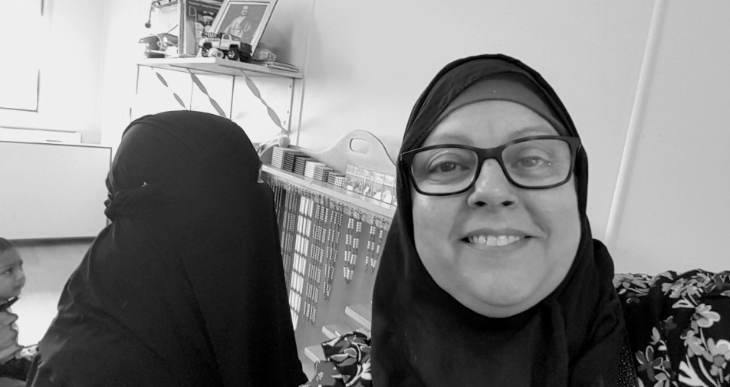Breaking Barriers: Dispelling Myths That Hinder Muslim Action Against Child Abuse
Introduction
Child abuse is a global issue that affects children across all cultures, religions, and backgrounds. Unfortunately, in some Muslim communities, certain misconceptions create obstacles in addressing and preventing abuse. These myths can lead to silence, victim-blaming, and failure to seek justice. This article explores common misconceptions that hinder the Muslim response to child abuse and provides insights on how to overcome them.
Misconception 1: Child Abuse Doesn’t Happen in Muslim Families
One of the most harmful myths is the belief that child abuse is not a problem within Muslim families. Some believe that Islamic teachings naturally prevent abuse, making it a rare occurrence. However, child abuse exists in all societies, and assuming immunity only leads to denial and inaction. Islam strongly condemns any form of oppression and harm against children. Recognizing that abuse exists is the first step toward addressing it effectively.
Misconception 2: Discussing Abuse is a Form of Disrespect
Many families avoid discussing child abuse due to the fear of bringing shame to the family or the community. In some cases, victims are pressured to remain silent to protect family honor. However, protecting children should take precedence over preserving reputation. The Prophet Muhammad (peace be upon him) emphasized justice and accountability, urging Muslims to stand against oppression, even within their own households.
Misconception 3: Religious Leaders Should Handle Abuse Cases Privately
Some Muslims believe that cases of abuse should be handled exclusively within the community, often by religious leaders, rather than reported to legal authorities. While Islamic scholars provide spiritual guidance, they are not trained professionals in child protection or law enforcement. Islam encourages seeking justice and using available resources, including the legal system, to protect the vulnerable. Reporting abuse to the proper authorities ensures the safety of victims and prevents further harm.
Misconception 4: Physical Discipline is Always Acceptable
A common justification for harsh physical punishment is the misinterpretation of Islamic teachings on discipline. While Islam allows for parental guidance and correction, it strictly forbids harm, excessive punishment, and cruelty. The Prophet Muhammad (peace be upon him) was known for his gentleness with children, emphasizing kindness and patience. Educating parents about positive discipline techniques can help prevent child abuse while fostering healthy family relationships.
Misconception 5: Boys Are Not Victims of Abuse
Another damaging belief is that only girls are at risk of abuse, leading to neglect in recognizing and addressing abuse against boys. Boys can also be victims of physical, emotional, and sexual abuse, and their suffering should not be ignored. Cultural stigmas may prevent boys from speaking out, fearing that acknowledging abuse will be perceived as weakness. Encouraging open discussions and providing support for all victims, regardless of gender, is crucial in tackling child abuse effectively.
Misconception 6: Forgiveness Means Avoiding Accountability
Islam teaches forgiveness, but this does not mean that abusers should escape consequences. Some communities pressure victims to forgive and forget, discouraging them from seeking justice. However, accountability is a fundamental part of justice. Forgiveness should be a personal choice, not an obligation, and should not replace legal and protective actions. Holding perpetrators accountable ensures that they do not continue harming others.
Misconception 7: Only Sexual Abuse is Serious
Many people only recognize sexual abuse as a severe issue while downplaying physical, emotional, and neglect-based abuse. Emotional abuse, such as constant criticism, humiliation, or neglect, can have long-term psychological effects. Islam teaches compassion, kindness, and the importance of protecting children from all forms of harm. Raising awareness about the different types of abuse is essential in creating a safer environment for children.
Steps Towards Change
To effectively challenge these misconceptions and improve the Muslim response to child abuse, several actions must be taken:
- Education and Awareness: Community leaders, parents, and educators should learn about child protection laws, Islamic teachings on child welfare, and psychological impacts of abuse.
- Encouraging Open Dialogue: Families and communities must create safe spaces where children feel comfortable discussing concerns without fear of judgment or punishment.
- Strengthening Legal and Religious Cooperation: Religious institutions should collaborate with law enforcement and child protection agencies to ensure that abuse cases are handled appropriately.
- Providing Support Services: Muslim communities should establish counseling and support networks for abuse survivors and their families.
- Empowering Victims: Victims should be encouraged to speak out and seek justice without facing stigma or blame.
Conclusion
Addressing child abuse in Muslim communities requires breaking the silence, challenging harmful misconceptions, and taking proactive measures to protect children. Islam strongly advocates for justice, mercy, and the well-being of the vulnerable. By acknowledging the issue, educating communities, and ensuring accountability, Muslims can create a safer environment where children are protected, nurtured, and valued.


Leave a Comment